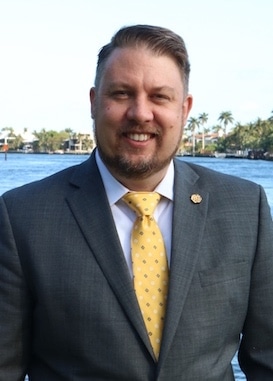Introduction:
By Christopher Benek
This week I am happy to feature a piece by a friend, colleague and doctoral peer of mine, Dan Wolpert. Dan has a diverse and extensive resume as one can see below. I am fortunate to know him and to learn from his expertise and his wisdom. Of particular note is Dan’s work and development with/of the Minnesota Institute of Contemplation and Healing (MICAH). MICAH is a multifaceted facility for the practice and study of spiritual formation and leadership, healing and the arts. Developed to be a contemplative Christian center, MICAH provides a sacred space within which its leaders and participants seek to create a life with God.
I personally am not aware of many (if any other) efforts in the United States that are doing the important work that Dan the folks at Micah have embarked upon. I would highly recommend that you investigate their site at: www.micahprays.org and see how their efforts might enrich your life and further your relationship with God. You can also follow MICAH of Facebook HERE.
“Discipleship in the Church”: The Need for Contemplation and Healing.
By Daniel Wolpert
In our current age, Discipleship – following, or becoming a follower of
Jesus – is often framed in terms of what we should do to become a ‘good’
Christian. What are the rules to follow, what does Jesus prescribe. It’s almost like taking medication.
But in Jesus’ time, and throughout most of Christian history, discipleship
was not seen as a set of proper behaviors, but rather as a transformative way of life, or way of being. The disciple desires to become like the teacher and as such they must change, fundamentally, from the inside out. This way of life has been called the spiritual life and it is a life of contemplation and healing. It is through these practices that we become disciples; as opposed to just trying to act like disciples. 
The words and stories of Jesus are full of paradox, full of logical contradictions. We are to live, but we need to die. God wants the best for us, but we must join in suffering. We receive abundance but we give everything away. Our daily life is governed by the habits and patterns of our minds, of our egos. We want, we grasp, we have our projects, we think we know what is right. It’s all very clear and logical. The contradictions that Jesus present us with confuse and even assault the well formed habits of our minds. He’s trying to find the cracks in our defense against God, against giving ourselves over to be disciples. Our deepest need for healing is the need to allow our separate ego to die so that we can take on the mind of Christ.
The practice of contemplation, the prayer practices of our tradition, creates in us a space for listening, for relaxing these habits of our mind.
Contemplation allows God to move into us and through us so that we may be transformed. We become more compassionate, quick to listen and slow to speak. We can enter into the silence where God eventually speaks to us. This is true healing. It is the advent of discipleship.
Peace,
Dan Wolpert
Minnesota Institute of Contemplation and Healing
Crookston, MN
 Daniel Wolpert worked as a research scientist, psychologist and spiritual director, a farmer, a teacher, and a construction worker before earning his Masters of Divinity degree at San Francisco Theological Seminary (SFTS). Over the past twenty five years he has taught in the fields of psychology and spiritual formation and led retreats in such settings as the Art of Spiritual Direction Program at SFTS, the Youth Ministry and Spirituality Project, national ministry conferences, UCLA, UND medical school, Luther Seminary, and numerous churches. Daniel currently serves as the church pastor of the First Presbyterian Church of Crookston, MN and is a co-founder of the Minnesota Institute for Contemplation and Healing. He is also the author of “Leading a Life with God, the practice of spiritual leadership (Upper Room 2006), “Creating a Life with God: the call of ancient prayer practices”(Upper Room 2003), and co-author of “Meeting God in Virtual Reality: using spiritual practices with media” (Abingdon 2004). Dan is currently doing Doctoral work in Science and Theology. He is married to Dr. Debra Bell and they have two sons, Sam and Max.
Daniel Wolpert worked as a research scientist, psychologist and spiritual director, a farmer, a teacher, and a construction worker before earning his Masters of Divinity degree at San Francisco Theological Seminary (SFTS). Over the past twenty five years he has taught in the fields of psychology and spiritual formation and led retreats in such settings as the Art of Spiritual Direction Program at SFTS, the Youth Ministry and Spirituality Project, national ministry conferences, UCLA, UND medical school, Luther Seminary, and numerous churches. Daniel currently serves as the church pastor of the First Presbyterian Church of Crookston, MN and is a co-founder of the Minnesota Institute for Contemplation and Healing. He is also the author of “Leading a Life with God, the practice of spiritual leadership (Upper Room 2006), “Creating a Life with God: the call of ancient prayer practices”(Upper Room 2003), and co-author of “Meeting God in Virtual Reality: using spiritual practices with media” (Abingdon 2004). Dan is currently doing Doctoral work in Science and Theology. He is married to Dr. Debra Bell and they have two sons, Sam and Max.





























